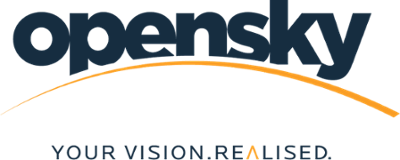AI, Flow State, and Why I Still Read Every Line of Code
I’m Yehor Pliasov, a Web Developer here at OpenSky. I’ve been building software for 6 years now — everything from single-page web apps to mobile platforms with millions of users. In that time, I’ve seen a lot change. But nothing — and I mean nothing — has shaken up the way I work quite like artificial intelligence.
Some changes have been incredible. Others… let’s say they’ve kept me on my toes.

The AI ABEL 2025 Conference – My Take
Last month, I had the chance to attend AI ABEL 2025 in Warsaw. It wasn’t just a “buzzword bingo” event — it pulled in over 270 participants from more than 40 countries, all talking about real AI applications. There were deep technical dives, hands-on workshops, and yes, plenty of networking coffee-fuelled debates about whether AI will replace us or just make us faster.
One of my favourite parts was the matchmaking sessions. You’d sit down with someone from a completely different industry — healthcare, finance, logistics — and find out they were facing almost exactly the same problems we solve in software. It’s a great reminder that the skills we sharpen here at OpenSky can translate anywhere.
How AI Has Supercharged My Development Flow

In the last couple of years, I’ve started using AI-driven tools daily. They’ve taken so much friction out of the job. Writing repetitive boilerplate code? Automated. Looking up obscure syntax quirks? Instant answer.
It’s not just about speed — although, yes, I’d say I get through some coding tasks twice as fast.
AI gives me room to think bigger. Instead of spending two hours wiring up yet another API integration, I can spend that time designing a cleaner architecture or exploring alternative solutions. It’s a lot more satisfying to end the day knowing I’ve done something creative rather than just ticking boxes.
At OpenSky, we get the space to experiment with these tools in real projects, not just in side hacks. That freedom to try, fail, and try again is one of the big reasons I enjoy working here.
Learning in Real Time
Before AI, learning a new framework or library could feel like slogging through an endless swamp of docs, Stack Overflow tabs, and trial-and-error commits. Now? It’s like having a senior engineer on call 24/7.
These tools don’t just spit out answers — the good ones explain why something works. I’ve picked up new techniques in hours that might have taken weeks before.
For example, when I was working on a complex data filtering feature, AI not only generated the query logic but also walked me through optimisations I hadn’t considered. That little “AI tutoring session” saved me a chunk of time and made the code cleaner.
AI-First IDEs and Staying in the Flow
If you’ve ever been in “the flow” and had to stop to Google some syntax or boilerplate, you know how frustrating that can be. Tools like Cursor and Windsurf basically read my mind at this point — they anticipate the patterns I’m about to write and fill in the blanks so I can keep moving.
I can jump from writing backend logic to tweaking a React component without feeling like I’ve fallen out of rhythm. The less I context-switch, the more creative energy I can put into solving the actual problem.
But It's Not All Sunshine
Here’s the part nobody likes to admit: AI can make you lazy if you’re not careful. I call it “Vibe Coding” — when you paste in AI-generated code that seems to work, without fully understanding what it’s doing.
The danger is real. That “mystery” code can hide nasty bugs that only reveal themselves later — usually on a Friday evening when you really want to log off. Debugging something you didn’t fully understand in the first place? Painful.
That’s why I’ve made a personal rule: I never drop AI code into production without reviewing it line by line. It’s slower, but I’ve avoided a lot of headaches that way.
Why I See AI as a Teammate, Not a Threat

AI won’t replace developers — at least, not the ones who can think critically, adapt, and keep learning. The best results I’ve seen come when I treat AI as a collaborator. It handles the heavy lifting, but the decision-making, creative problem-solving, and code quality are still 100% on me.
Working at OpenSky makes that balance easier. We’ve got a culture that values experimentation but also respects fundamentals. We’re encouraged to try new tech, but also to keep our skills sharp so we’re not just “button pushers” for AI.
For me, AI isn’t about doing less work — it’s about doing more of the work I actually enjoy. The part where you solve problems that matter, build something elegant, and push yourself to learn something new.
If you’re the kind of developer who loves experimenting with cutting-edge tools, but also believes in writing clean, thoughtful, human-readable code — you’ll fit right in here at OpenSky.

